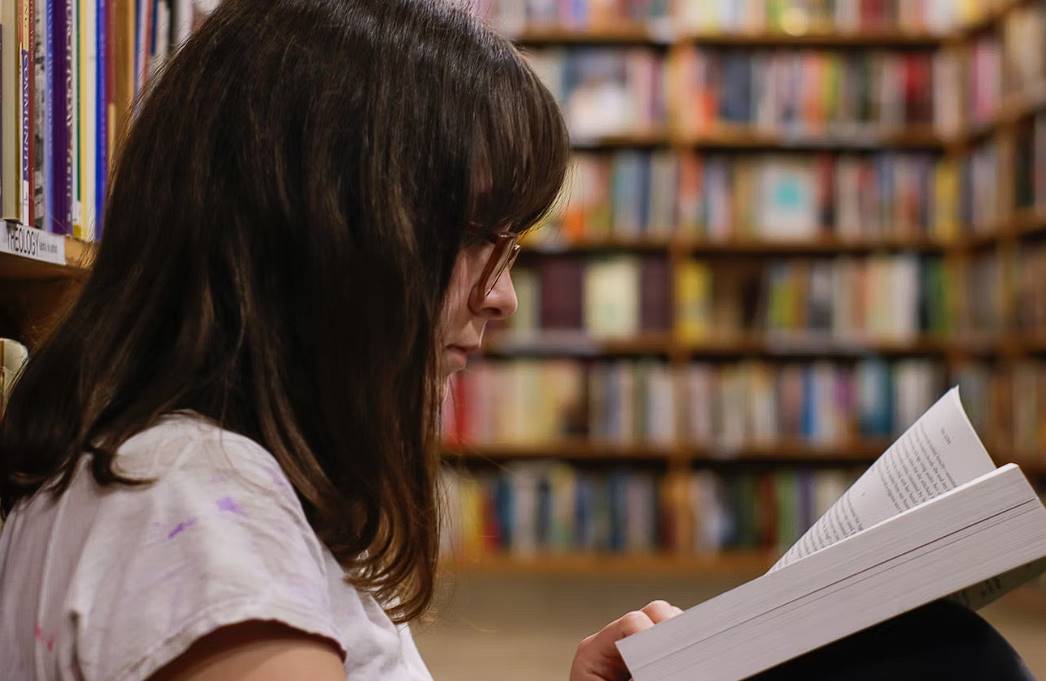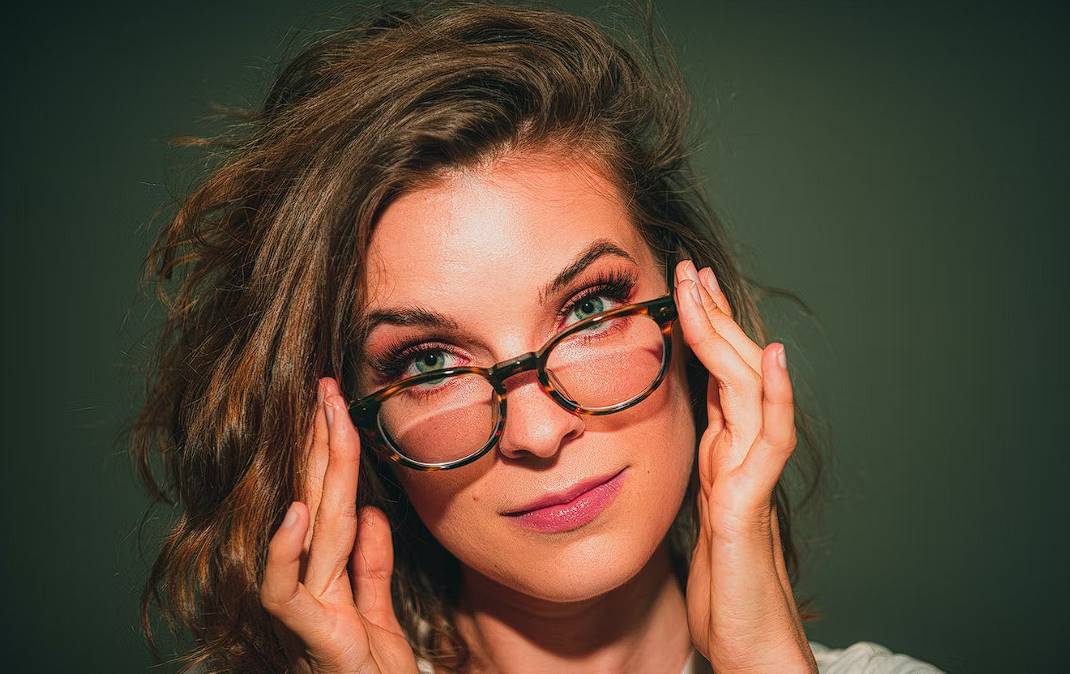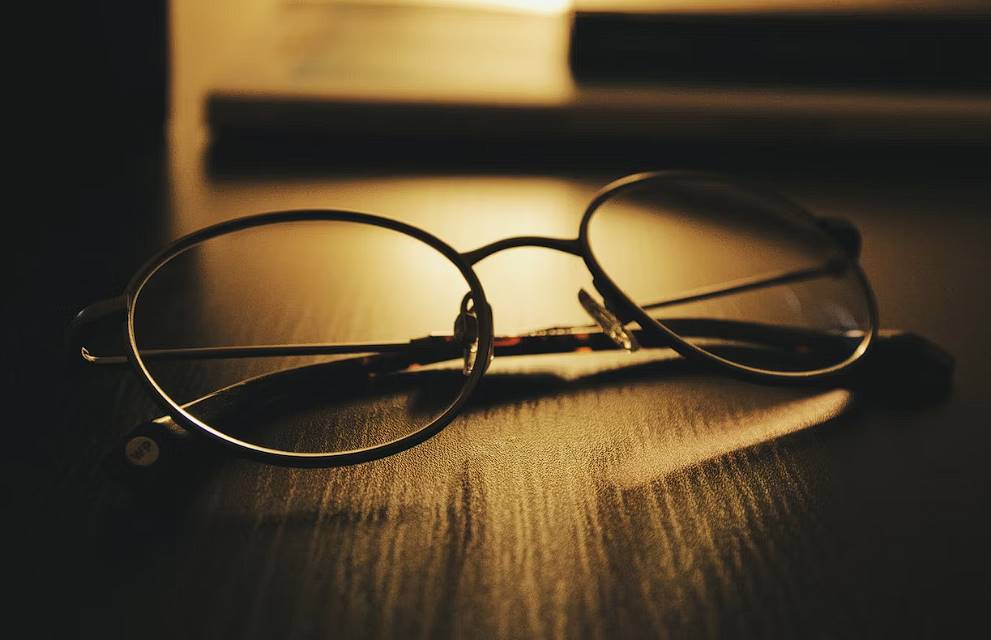Understandably, you would only want to change your glasses if necessary. However, there are situations where it becomes essential to do so. Regularly replacing your glasses is crucial for your eyes' health and ability to see clearly. The importance of getting new glasses lies in their impact on your overall quality of life and your visual capabilities while engaging in everyday activities such as driving, working on the computer, or reading important documents.
Depending on your perspective, the decision to acquire new glasses can either be an exciting prospect or seem like a waste of money. Regardless of how you feel, it is essential to obtain new glasses to maintain good vision and preserve the health of your eyes. So, how frequently should you replace your glasses?
Optometrists generally recommend getting new glasses every two to three years. However, there are additional factors to consider besides just the passage of time. If you need more clarification about the ideal frequency for replacing your glasses, here are some significant milestones and indicators to consider.
Signs You Need a New Pair of Glasses
Eye health experts recommend that individuals with healthy eyes should visit an optometrist for an eye exam every two years. However, if you have an existing eye issue or are aged 60 and above, it is advisable to undergo an eye exam annually.
Additionally, it's important to be vigilant for signs that indicate your current prescription is ineffective. If you notice a decline in your visual clarity compared to your previous state, scheduling an appointment with us is recommended. We can conduct an eye exam to verify whether your prescription is still accurate and make any necessary adjustments.
Blurry Vision
If they can't see well, they need a new prescription. People who can't see well often squint to make things clearer. This will give you a headache. This problem can be fixed by getting a new prescription. If the prescription isn't kept up-to-date, it could cause migraines and other problems, like driving hard.
You're Squinting to See
If you must squint to see via your glasses, it's time to get a new pair. Even when you're wearing your glasses, you shouldn't have to blink or strain your eyes to see. It's not good for the eyes or your health and well-being as a whole to squint to see. Headaches can be caused by having to squint to see. The prescription must be increased if you must squint to see with your glasses on.
If you wear prescription glasses, you shouldn't have to squint to see very often unless you're in a very bright place. Your eyes automatically make you squint to help you see better and keep too much light from getting in.
If your regular glasses don't block enough light, you may need to talk to your eye doctor to find out if you need special sunglass lenses or transitional lenses. Even though you wear sunglasses with prescription or transitional lenses, you still have trouble with intense light and squinting. In that case, you should make an appointment with your eye doctor to talk about what you can do.
You'll need to make an appointment with your eye doctor to talk about what might be wrong and how to fix it. Before giving you a new pair of glasses, your eye doctor will make any necessary changes to your prescription and reevaluate your vision needs.
Headaches
Frequent migraines are a clear sign that your eyes and brain are working harder than they should be. In this case, your eyes and brain have to make up any optical mistakes that your current eyeglass prescriptions can't fix. You need to remember that taking pain medications will only help for a short time. The best thing to do is see your eye doctor and get new glasses.
Tired Eyes
When an individual's prescriptions become outdated, their eyes are required to exert more effort than usual. In such cases, people tend to squint in order to enhance their vision, inadvertently straining their eyes. If one experiences fatigue in their eyes, it is advisable to consult an eye doctor, as the likelihood of requiring a new prescription is high. This adjustment can significantly alleviate eye fatigue by reducing the overall stress exerted on the eyes.
Your Glasses Are in Poor Condition
If your glasses, lenses, or frames are in bad shape, it's time to replace them with something new. Here are some signs that your glasses aren't in good shape and you need a new pair:
- Broken glasses
- Foggy or faded lenses
- Broken glasses
- Screws are missing
- Warped or broken frames
Glasses Are Scratched
When glasses are new, you can see well through the lenses. Still, glasses are susceptible to scratches and other damage, making it hard to see over time. People must go to an eye doctor to get another prescription if the old one is no longer good. Then they will be able to buy new glasses with clean lenses.
Your Glasses Are Outdated
When your glasses get old, you may need to get new ones. New improvements in eyewear, such as transition lenses, lenses that block blue light, and "drive safe" lenses, have all made eyewear more useful and flexible. Because of these features and their versatility, wearing glasses has become easier and more fun for people who used to have to carry around different pairs of glasses for different tasks.
Before, you might have needed multiple pairs of glasses for driving and working on the computer, among other things. With the latest improvements in eyewear technology, you might require just one pair of glasses that can adapt to your eyes' needs at different times of the day.
Double Vision
If you have double vision, your eye muscles aren't working as they should. Using old eyeglasses prescriptions is one of the main reasons why people see double. So, this problem can be easily fixed by getting new glasses.
Hard to Clean the Glasses
Extras like scratch-resistant and UV protection are often added to glasses. The extra coating wears away over time. It takes a lot of work to clean the glasses this way. People should get rid of glasses that are hard to clean. Wearing the glasses for a long time can make it hard to see. Also, driving will be dangerous if the glasses are difficult to clean.
When You Take Off Your Glasses, You Feel Better
If taking off your glasses at the end of the day makes you feel better or more relaxed, you may need to get new glasses. This means your eyes work too hard while you wear your glasses. If you feel better when you take them off after putting them on for a long time, you need a new prescription.
Cannot See Items up Close
As people get older, a lot of them get reading glasses. With the glasses on, it's easy to see things close up. People who can no longer see things close up need a new prescription. People will notice that they move things away from them when they look. This lets the eyes concentrate. When the prescription is updated, these individuals won't have to move things out of the way to see.
Changes to Your Prescription
Most eye doctors say you should check your eyes every two years. This means that your prescription might alter a lot between when you get new glasses. If you use an old prescription, it can hurt your eyes in many ways. These might involve but are not limited to, headaches, eye strain, and blurry vision. It is better to be safe than sorry about a prescription that has passed its expiration date.
Your eyes could be hurt in many ways by old or wrong prescriptions. We've already talked about some of these effects, but what should you watch? Old prescriptions could make it harder to see clearly, cause your vision to blur, or make you see double. Getting blurry vision, especially for things that are far away, is another sign that your glasses are getting old.
If you have to squint to see these things clearly, it might be time to get new glasses. Do you feel relieved or more comfortable when you take off your glasses? It's time to get new frames. Eye strain is one of the most prevalent indications of a prescription that is getting old. It should be easy to look through your lenses. If you still need to, you should get a new pair.
Going to get new glasses is a great reason to get your eyes checked. Why not get a new prescription as well? You're getting new glasses. Visit your eye doctor for an eye exam and make sure your prescription lenses are up-to-date and correct.
How Long a Pair of Glasses Tends to Last
The lenses and frames that make up your spectacles are made to last and be able to handle the daily wear and tear that comes from your daily life and routines. Your glasses might look like they can't break or can't be hurt, but they can. It's important to remember that your glasses only last for so long. Most eye doctors say you should get new glasses approximately every two to three years and see them once a year to ensure your prescription works well and nothing needs to be changed.
There are also things you can do to make your glasses last longer, such as:
- Don't put your glasses down with the lenses facing up.
- For sports and other activities outside, use a strap.
- Don't wipe the lenses with a paper towel, a tissue, or a hand towel.
- Use only sprays or cleansers that have been approved and suggested.
- To clean your glasses, hold them by the bridge.
- When you're not wearing your glasses, put them in their case to keep them safe.
- To clean lenses, only use a soft cloth.
Once you find a pair of glasses that fits well and has the right eye prescription, you might not notice that you need to replace them every two to three years.
But it's best to have your eyes examined often and see your eye doctor or provider once a year to ensure your glasses work well and do what they're supposed to. Even if you don't notice little changes in your eyesight, that doesn't mean they aren't happening. Your eye doctor or another approved care provider is the only one who can test your eyesight to see if you need new glasses or a new prescription.
Conclusion
If you want clear vision and healthy eyes, you need to replace your glasses on a regular basis. Although optometrists often advise buying new glasses every two to three years, this recommendation can vary depending on a number of factors. Blurred vision, squinting to see, headaches, and exhaustion are all possible indicators that it's time for a new pair of glasses. If your eyes are in good condition, you should get an exam every two years; if you have any preexisting eye problems or are above the age of 60, you should get one every year.
Blurred vision, squinting to see, headaches, exhaustion, poor glasses quality, scratches, and outdated glasses all point to prescriptions that aren't doing their job. Prescription changes and other preventative care from regular eye exams can reduce eye strain and enhance eyesight.
shattered, cloudy, faded, shattered, or warped frames are all signs that it's time to get new glasses. Transition lenses, blue light blocking lenses, and "drive safe" lenses are just a few examples of the recent advancements in eyewear that have increased their utility and adaptability. Maintaining excellent eyesight and the correct prescription requires regular eye exams. Those who previously need an arsenal of glasses to complete their daily chores can now get by with just one stylish pair. New developments in eyewear technology have made it possible to get by with a single pair of glasses that changes prescriptions during the day.
Getting new glasses is a must if you're experiencing double vision. Driving with dirty glasses is hazardous because of the impaired vision. If you notice an improvement after removing your glasses, it's a sign that your eyes are straining under their weight. When reading small print becomes difficult, it's time for new glasses.
Vision problems, like as headaches and eye strain, are common after a change in prescription. When it comes to a medication that has passed its expiration date, it's advisable to err on the side of caution. If your prescription is out of date or incorrect, you may experience difficulty seeing, blurred vision, or even double vision. You may need new glasses if you have to strain your eyes to make out the details.
Holding them by the bridge instead of the lenses, using approved sprays or cleansers, avoiding laying them down with the lenses facing up, and cleaning them with soft cloths will all help your glasses last longer. It's easy to forget that you need new glasses every two to three years once you find a pair that fits well and has the proper eye prescription. If you wear glasses, it's important to have your eyes checked often and replace them yearly to keep them in good working order.
Content Summary
- Regularly replacing your glasses is crucial for your eye health and clear vision.
- New glasses can significantly impact your overall quality of life.
- Optometrists generally recommend getting new glasses every two to three years.
- Regular eye exams are important, especially if you have existing eye issues or are above 60 years old.
- Declining visual clarity compared to your previous state may indicate the need for a new prescription.
- Squinting to see clearly is a sign that you need a new pair of glasses.
- Squinting can lead to headaches and other eye strain-related problems.
- Glasses should not require blinking or straining of the eyes to see properly.
- Bright environments may necessitate special sunglass or transitional lenses.
- Eye doctors can evaluate your prescription and make necessary adjustments.
- Frequent migraines may indicate the need for new glasses.
- Outdated prescriptions can cause your eyes and brain to work harder.
- Fatigue in the eyes may indicate the need for a new prescription.
- Broken or worn-out glasses, lenses, or frames should be replaced.
- Foggy, faded, or scratched lenses may require a new pair of glasses.
- Missing screws or warped frames are signs that you need new glasses.
- Glasses that are hard to clean can hinder visibility and pose a danger while driving.
- Feeling better or more relaxed when removing your glasses suggests the need for new ones.
- Difficulty seeing objects up close may indicate the need for reading glasses or a new prescription.
- Technological advancements in eyewear have made glasses more versatile and adaptable.
- New glasses can eliminate double vision caused by outdated prescriptions.
- Glasses with worn-out coatings can become difficult to clean.
- Checking your eyes regularly helps prevent headaches, eye strain, and blurry vision.
- Old prescriptions can make it harder to see clearly and cause vision problems.
- Squinting to see clearly is a sign that your glasses need to be replaced.
- Feeling relieved or more comfortable without glasses suggests the need for a new prescription.
- Eye strain is a common indication of an outdated prescription.
- Regular eye exams when getting new glasses ensure up-to-date prescriptions.
- Glasses last approximately two to three years before needing replacement.
- Proper care, such as storing glasses in a case, can prolong their lifespan.
- Avoid placing glasses with lenses facing up to prevent damage.
- Using a strap for sports and outdoor activities helps protect your glasses.
- Use approved cleansers and sprays to clean your glasses.
- Hold glasses by the bridge when cleaning.
- Soft cloths are ideal for cleaning lenses.
- Even if your glasses fit well, regular eye exams are crucial to ensure they work effectively.
- Minor changes in your eyesight can occur without notice.
- Eye doctors or approved care providers can determine if you need new glasses or a prescription.
- Replacing your glasses regularly supports good eye health.
- Maintaining clear vision enhances your ability to perform daily activities.
- Regular eye exams are particularly important for those with existing eye conditions or above a certain age.
- Declining visual clarity may require an updated prescription.
- Squinting to see clearly can strain your eyes and cause headaches.
- Broken or worn-out glasses, lenses, or frames should be replaced promptly.
- Foggy, faded, or scratched lenses affect visibility and necessitate new glasses.
- Glasses that are difficult to clean may impact your ability to see clearly and pose risks while driving.
- Feeling better or more relaxed without glasses indicates the need for a new prescription.
- Difficulty seeing objects up close suggests the need for reading glasses or an updated prescription.
- Regular eye exams ensure your glasses remain effective and meet your vision needs.
- Taking care of your glasses and having regular eye check-ups support the longevity of your eyewear and overall eye health.
Frequently Asked Questions
Wearing old glasses with a prescription can hurt your eyes and make it harder to manage and fix your vision over time. Some signs that you might need a new prescription from an eye doctor are: Vision gets hazy. Their headaches got worse.
People can be told to wear glasses when they study, read, work on the computer, drive, etc. Many people only need to wear glasses sometimes. If you need more clarification, you should be bold and ask your eye doctor what they think.
But you might want to think twice before saying that your current glasses are "good enough." Wearing the same lenses for more than a year can cause several health and vision problems with your eyes. Just like medicine, your glasses have a date when they should be thrown away.
For many eye problems, you can stop wearing your glasses or contacts without risking your eyes' health. You may feel bad, but it won't hurt your eyes. For example, people with hyperopia can't see up close when they don't wear their glasses.
The clarity of the lens changes.
After a good night's sleep, it will be easier for the eyes to get used to the new glasses. Most of the time, it takes about a week for your eyes to get used to new glasses. After a few days of constant use, the symptoms of discomfort will go away.










